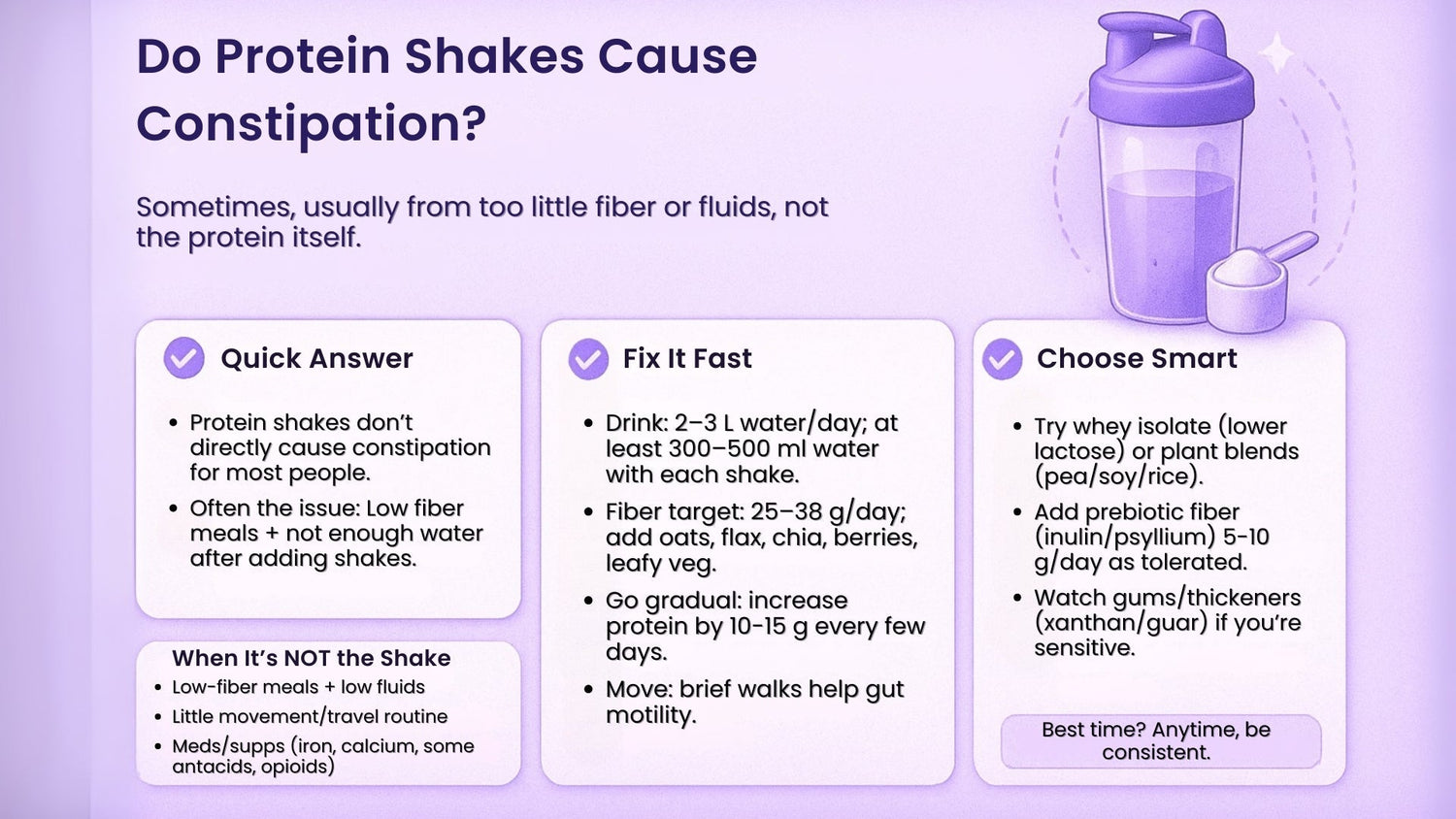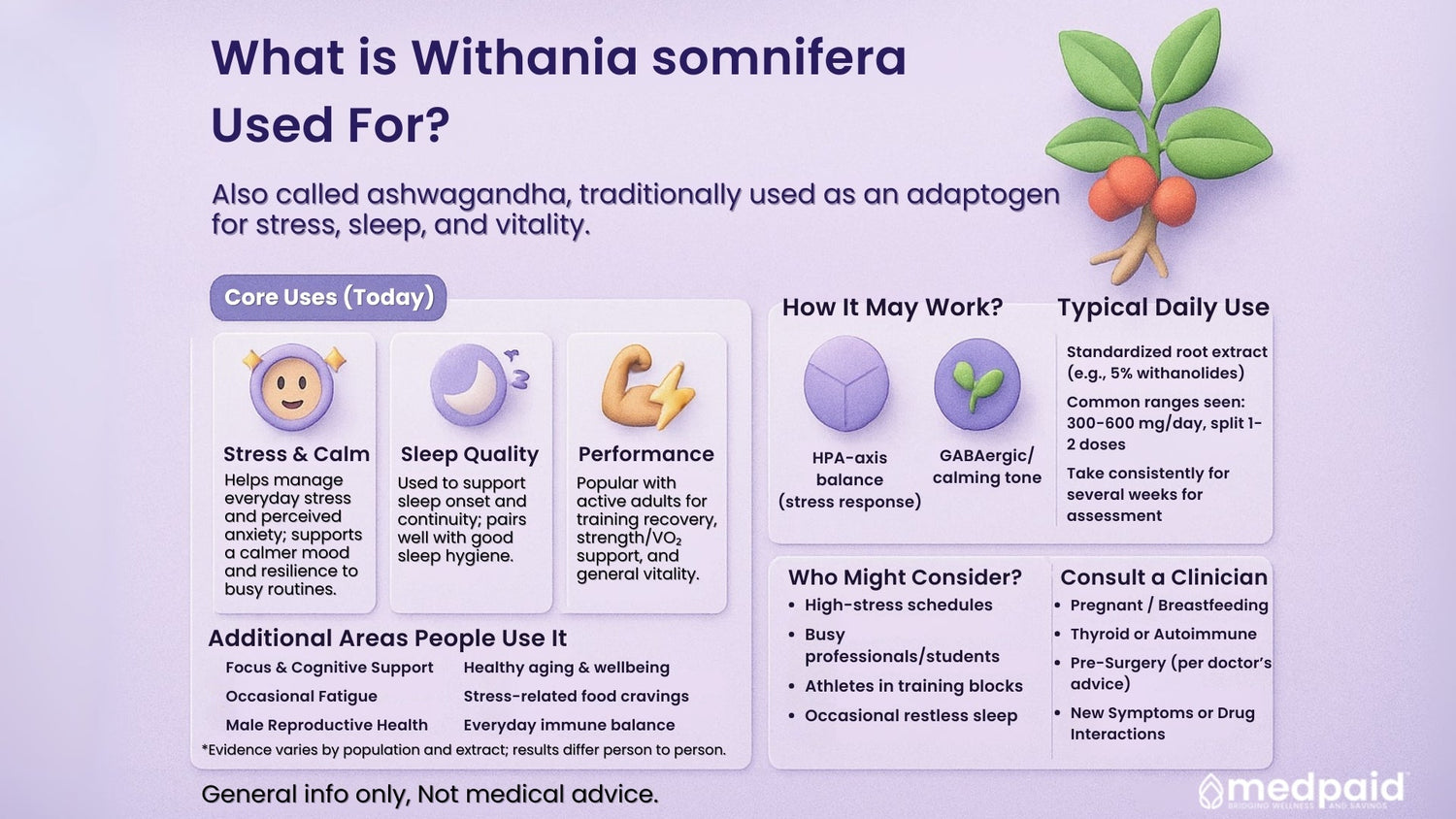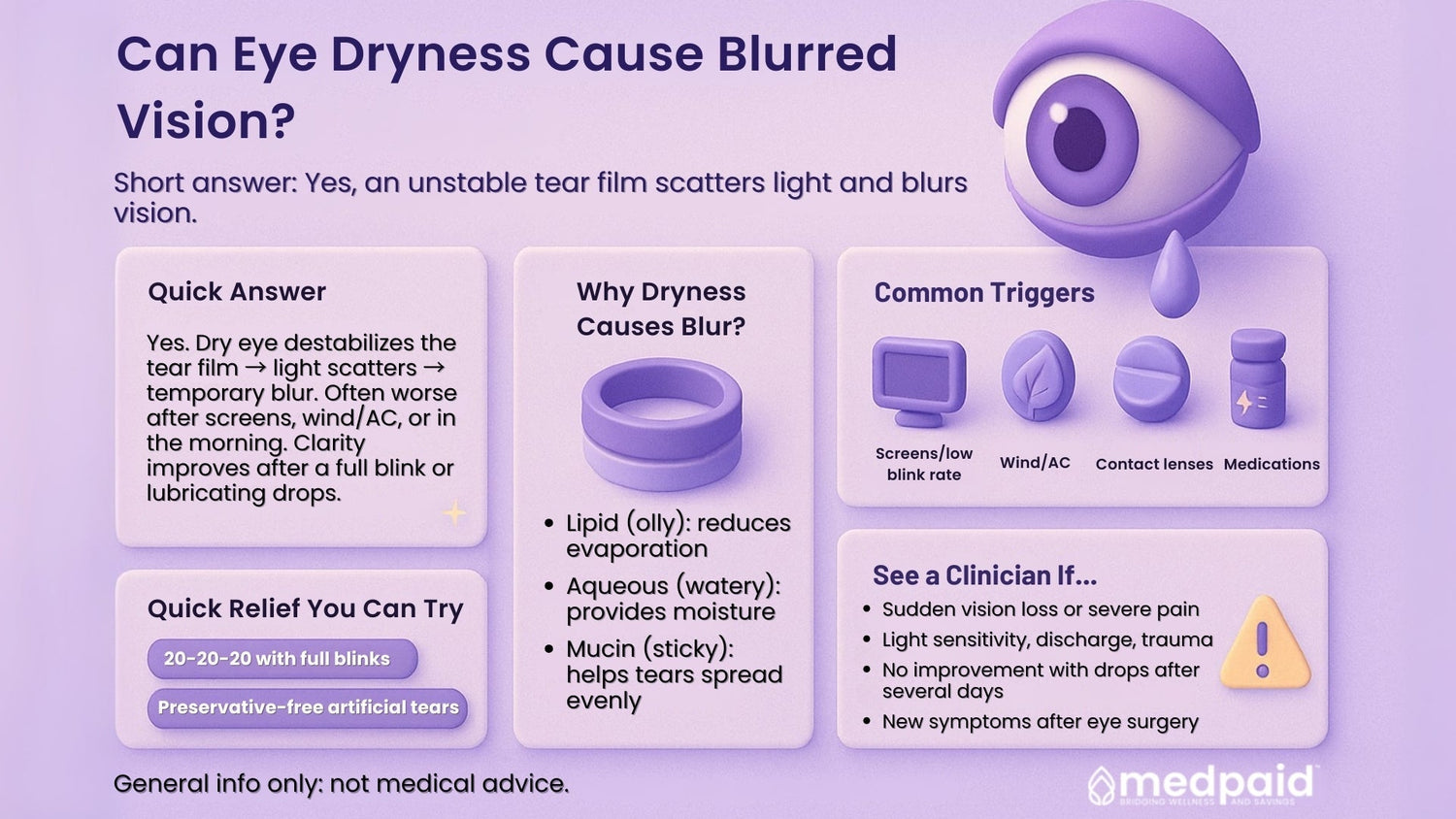What is Magnesium Glycinate?

Magnesium glycinate is magnesium bound to the amino acid glycine. Chelating magnesium to glycine makes it highly bio available and easier for the body to absorb. Unlike some other forms (such as magnesium oxide), magnesium glycinate is gentle on the stomach and generally well tolerated. Magnesium is an essential mineral involved in nerve and muscle function, bone development, blood sugar control and heart rhythm regulation.
Why Magnesium Matters?

- The body needs magnesium to regulate more than 300 biochemical processes.
- About half of people may not get enough magnesium from their diet.
- Low magnesium levels are linked with sleep problems and may contribute to anxiety, muscle cramps and other symptoms such as fatigue and abnormal heart rhythms.
Potential Benefits of Magnesium Glycinate
Clinical studies and expert reviews suggest several potential benefits of magnesium glycinate. Most evidence comes from small trials, so results can vary. Individuals should discuss supplementation with a healthcare professional, especially if they have medical conditions or take medications.
|
Potential benefit |
Evidence & explanation |
Solution |
|
Sleep & relaxation |
Magnesium helps calm the nervous system by activating GABA receptors and regulating melatonin. Higher magnesium levels are associated with better sleep, longer sleep times and less tiredness. Some small studies found that magnesium supplementation helps older adults fall asleep faster and protects against waking up too early. |
|
|
Anxiety and stress reduction |
Magnesium can reduce cortisol (a stress hormone) and balance neurotransmitters by limiting glutamate release and enhancing GABA release. Magnesium glycinate is often recommended for anxiety because glycine itself has calming effects and magnesium is well‑absorbed. |
|
|
Bone and joint health |
Magnesium aids calcium absorption. Adequate magnesium supports bone density and may lower the risk of osteoporosis. |
|
|
Blood sugar management |
Magnesium helps regulate insulin sensitivity. Some research indicates that magnesium glycinate can assist in managing blood sugar and may lower the risk of developing type 2 diabetes. |
|
|
Heart rhythm and cardiovascular support |
Magnesium helps maintain normal heart rhythms and supports blood pressure control. Reviews show that magnesium supplements might reduce the risk of stroke and heart failure. |
|
|
Premenstrual and menstrual symptoms |
Magnesium may reduce premenstrual syndrome (PMS) symptoms and can ease muscle cramps. |
|
|
Exercise and energy |
Adequate magnesium supports muscle function and may reduce exercise‑induced muscle soreness. It also contributes to energy production. |
|
|
Immune and brain health |
Magnesium supports immune function and neurotransmitter balance. Forms like magnesium L‑threonate (another chelated form) may improve cognitive function. |
Is Magnesium Glycinate Good for Sleep?

Research suggests that magnesium glycinate may help improve sleep quality by calming the brain, relaxing muscles and supporting the body’s natural sleep rhythms. Experts note that it may help some people fall asleep faster and achieve more restorative sleep. However, not everyone experiences the same effect: some people notice benefits within a few days while others may take weeks. Because there are few large, high quality trials specifically on magnesium glycinate, sleep problems should also be addressed through good sleep hygiene and medical advice.
Is Magnesium Glycinate Good for You?

Magnesium glycinate is beneficial for people who need to raise their magnesium levels or want targeted support for sleep, stress or metabolic health. It is gentle on the stomach and well absorbed. Nevertheless, supplements are not a cure all. Experts advise prioritizing dietary sources of magnesium (dark green leafy vegetables, nuts, seeds, beans, whole grains, fruits and fish) and using supplements only when necessary. Excessive magnesium can cause low blood pressure, nausea, vomiting and heart rhythm disturbances, and high doses of any supplement may interact with medications. Always consult a healthcare professional before starting magnesium glycinate.
Dosage and Safety

-
Recommended Dietary Allowance (RDA): 310-320 mg per day for adult women and 400-420 mg for adult men. The Sleep Foundation advises not exceeding 350 mg per day from supplements for sleep purposes.
-
Typical supplement dose: 200-400 mg magnesium glycinate daily, preferably taken with food to reduce stomach upset.
-
Safety: Most people can take magnesium supplements daily. Start with a lower dose and monitor for side effects such as diarrhea or stomach upset. Those with kidney disease, heart conditions, or who take antibiotics should seek medical advice.
Natural sources of magnesium
To meet magnesium needs through diet, include foods rich in the mineral such as leafy greens (spinach, Swiss chard), nuts and seeds, beans and lentils, whole grains, fruits (bananas, figs, blackberries) and fish. A balanced diet coupled with targeted supplements (when appropriate) provides comprehensive support for bone, heart and metabolic health.
Magnesium glycinate is a well absorbed form of magnesium that may help with sleep, stress relief and various aspects of physical health. Evidence from clinical studies suggests that magnesium supplementation can improve sleep quality, reduce anxiety, support bone density, assist blood sugar control and maintain heart rhythm. However, more robust research is needed, and supplementation should not replace medical care. Individuals should prioritize dietary sources and consult healthcare professionals before using magnesium glycinate or any other supplement.
Helpful Medpaid Resources:
- Explore doctor‑vetted vitamins & minerals and greens & superfoods for natural nutritional support.
- For targeted needs, see collections such as men and women support, probiotic support, eye support and nutritional support.
- If you’re considering supplementation, browse products like Chelated Magnesium Glycinate 500 mg Capsules or Thorne Magnesium Bisglycinate Powder and consult your healthcare provider before purchase.
















